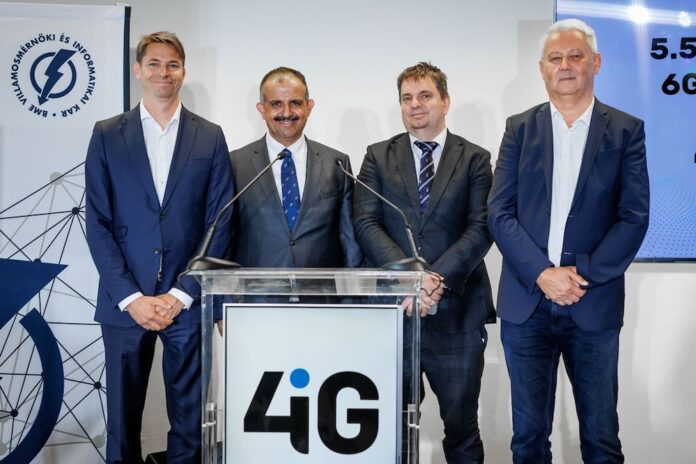The Hungarian operator, which has a controlling share of Vodafone in-country, says so-called 5.5G is capable of up to 10 times faster download speeds than 5G
Central European operator 4iG has successfully demonstrated the potential of the 6GHz band and 5G Advanced technology – which was only included by the ITU as licensable spectrum at WRC23 the end of last year – in the Budapest University of Technology and Economics (BME VIK) laboratory.
The telco, together with the Faculty of Electrical Engineering and Informatics of the Budapest University of Technology and Economics, is researching cutting-edge technology and said the new antenna technology based on current base stations, can offer up to ten times the download speed compared to the fastest 3.5 GHz solution currently in use.
With measurements carried out under laboratory conditions, the working group consisting of 4iG Group engineers and BME VIK researchers registered a data transmission speed of more than 10Gbps. The operator said a significant advantage of the new, so-called Extra Large Antenna Array (ELAA) antenna technology is that the 6GHz band can also be installed at existing sites and base stations to expand the network capacity “by leaps and bounds”, adapting to the 3.5 GHz coverage, new base station without installing locations.
Huawei solution
The solution ran on Huawei Technologies devices, and the operator said by using it, mid-band frequencies are capable of gigabit data transfer speeds with wider coverage. The equipment installed at the Budapest University of Technology and Economics primarily serves research purposes and, with the cooperation of 4iG’s Western Balkan subsidiaries, the test period also provides the researchers of the technical universities of Tirana and Podgorica with the opportunity to learn about and study the new technology.
Six months ago, 4iG Group chairman Gellért Jászai and Group CEO Peter Fekete signed an MoU in China with Huawei chairman Liang Hua to collaborate on 5G, despite the EU’s decision to impose security restrictions on the use of 5G equipment from “high-risk suppliers”. US Government officials subsequently met with Jászai and reportedly expressed their concerns about Huawei.
4iG Group became the majority owner of Vodafone Hungary at the beginning of last year. The telco is currently amidst the handover process of Vodafone’s technical and administrative back-end systems. In July last year, as part of a wider mobile network portfolio rejig, 4iG Group subsidiary Antenna Hungária entered into an agreement to sell MIS Omega Mobilhálózat, which owned Digi’s mobile infrastructure in the country. The new owner, state-owned Pro-M, gained 2,500 towers, active and passive radio network assets, as well as the rights and 1800MHz spectrum licences.
The path from trial to reality
“The testing of the world-first 6GHz mobile technology is in line with the 4iG Group’s innovation plans and digitalisation goals,” said 4iG Group’s mobile and 5G strategy director Pál Zarándy. “The switch to 5G technology is an entry point for 4iG, which has a strong IT background, because in addition to providing the infrastructural background, it also enables the exploitation of the most modern data transmission solutions.”
“The 4iG Group has brought the next level of mobile communication development to Hungary and Central-Eastern Europe, the 6GHz 5.5G cutting-edge technology,” he added.
“The 6GHz technology just presented is an important step in terms of the goals previously formulated in the 5G visions,” said BME VIK dean of the Faculty of Electrical Engineering and Informatics Dr Charaf Hassan. “The new frequency band accepted by the ITU helps the development of advanced, 5G-based industrial applications, the creation of smart factories and a ‘connected’ economy.”
He added: “The 6GHz radio data transmission arrangement is only an experimental demonstration. At the same time, the events of this year’s Mobile World Congress (Barcelona) and the increased industrial interest in the new technology indicate that 6GHz may soon appear in mobile networks and gigabit mobile internet will become a reality for users.”


